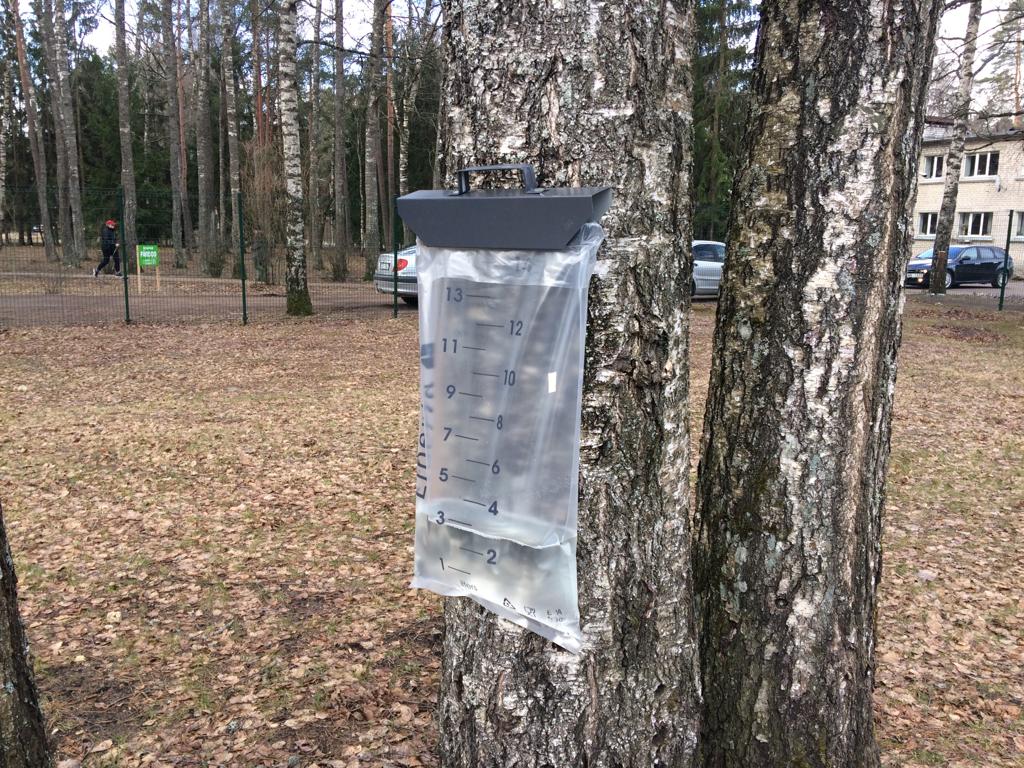“Birch tree juice is a cocktail, because in it you can find various substances. In several locations where we tap birch sap it's comparable to well water. Composition varies slightly, there are more of some elements, less of some, but it doesn't differ by much,” said Ciekure.
“Birch trees take from the soil what they require themselves. Several of these elements are the kind people also need. There are known positive effects from the substances contained in birch tree juice. People frequently drink birch tree juice to supplement their daily liquid intake. Drinking birch tree juices we also ingest biologically active substances and vitamins that can positively impact our body,” continued the expert.
At the same time she points out that no clinical studies have been conducted to ascertain the benefits of consuming birch tree juice. There also haven't been any studies on the amount of pesticides contained in the juice. Pollution can enter the juice through the soil, but that depends on whether the roots are able to soak up the substances. Pollutants can also possibly enter through open containers during the sapping process.
As reported in 2016, Latvian Television's "4th Studio" sought to answer whether it's safe to tap into the power of nature within a polluted urban environment. Latvian University professor Arturs Vīksna said that actually sap from birches within the city is as clean as drinking mineral water.
"Generally speaking, every living organism, especially in nature, purifies itself. So the pollution remains in the root system as all nutrients are absorbed through roots. There are special tubers where these toxic substances remain," said Vīksna.
Birch tree juice is extremely popular in Latvia, and Latvian law allows each individual to tap a single hole in a birch, even in state-owned forests as well, as long as the diameter is over 40 centimeters. Since 2011 Latvian beverage company Sula has taken advantage of the niche birch sap product market, even exporting products to European markets. Heading to the woodside to tap trees for fresh birch juice in a time-honored local tradition might just bring some added value to the national economy.
Latvian Television's “Forbidden Measures” conducted “Operation Birch and Maple Juices” last spring to uncover the various substances found in an array of different juices purchased in markets and shops. See their story for tables on what levels the juices contain of coliforms, sugar, calcium, potassium, magnesium, iron and magnesium. They came to the same conclusion that the minerals could be beneficial, but that the main benefit is hydration.




























